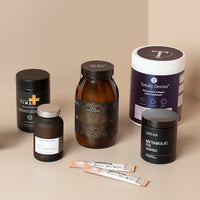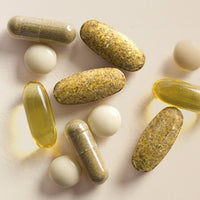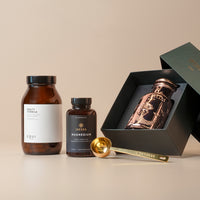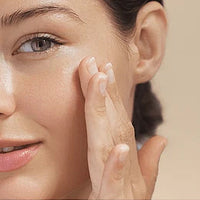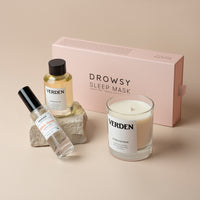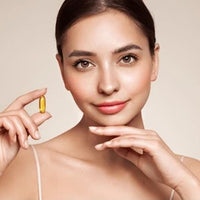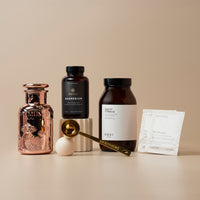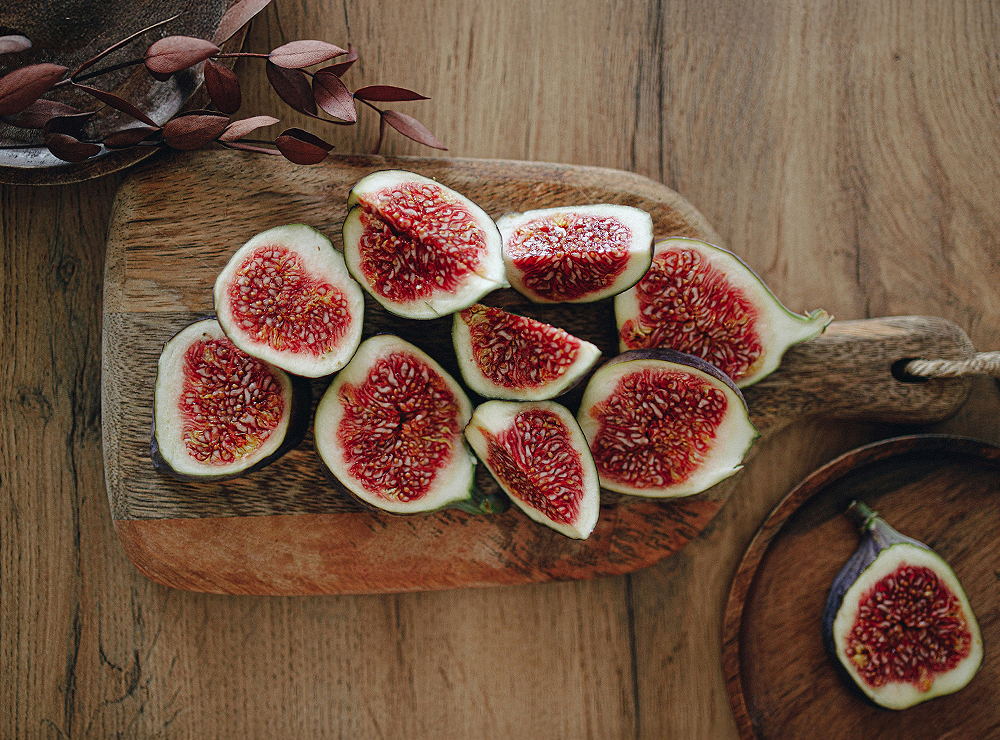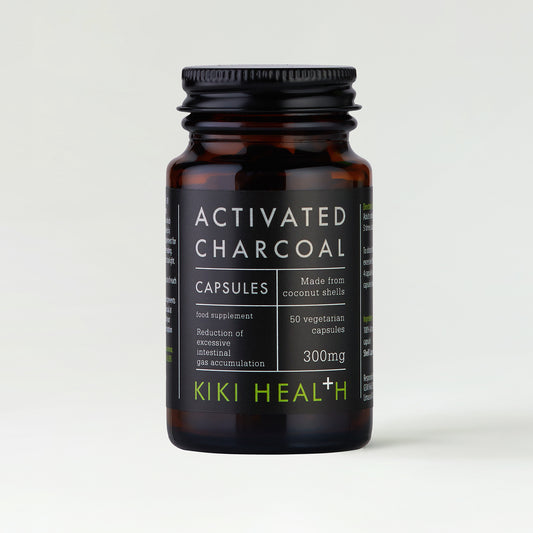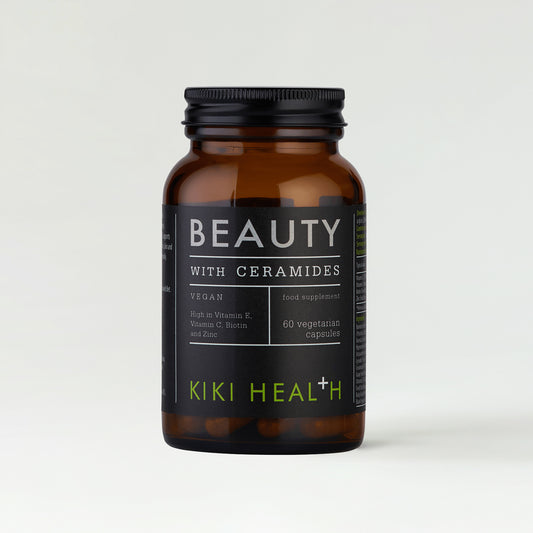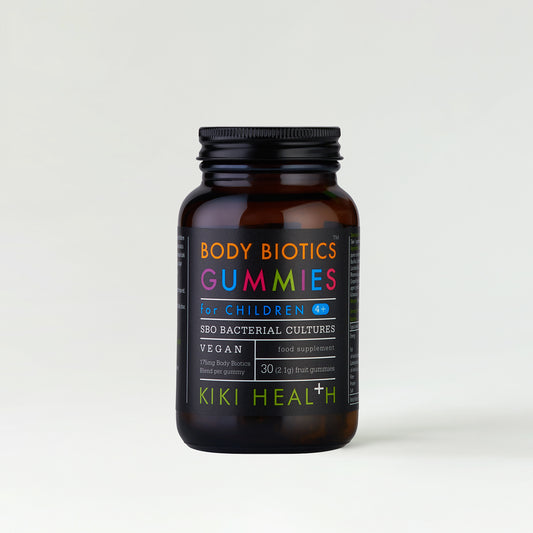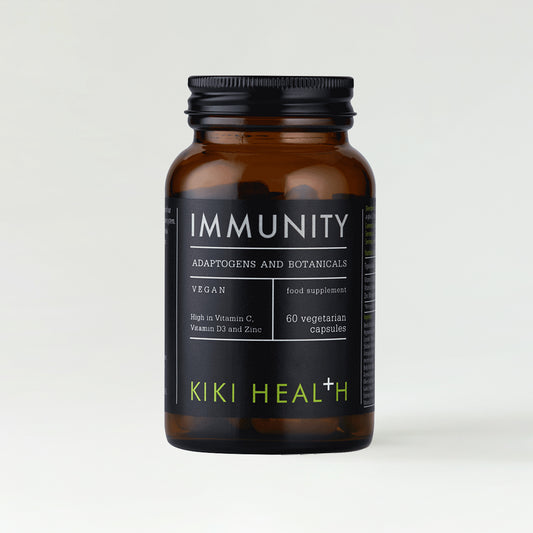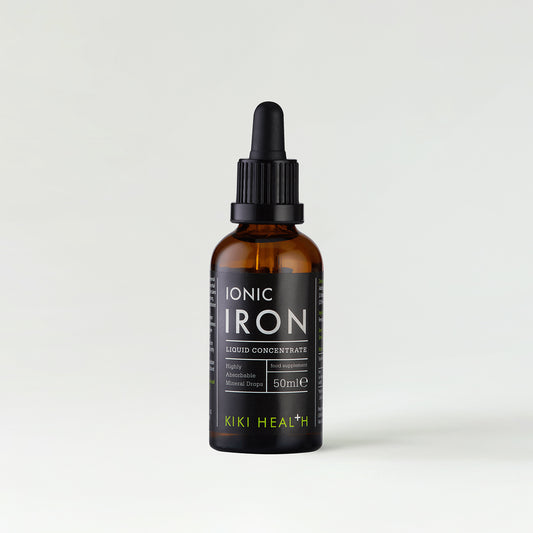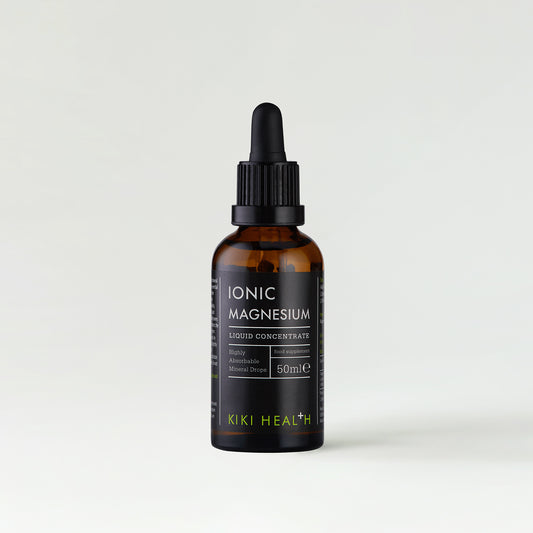Let’s be real. Modern life doesn’t always allow us to prepare every meal from scratch. Maybe you grab a pre-packed poké bowl for lunch, dine out for dinner, or pick up a snack on the go, that’s absolutely normal. The important thing is knowing what “organic” actually means and why it matters, and why you may want to support your body with organic supplements when you can't eat 100 per cent clean.
What Does “Organic” Really Mean?
At its core, "organic" refers to products, whether food, skincare, or clothing, that are grown or made without synthetic pesticides, fertilisers, or genetic modification. When it comes to animal products, meeting specific welfare standards is also mandatory.
How do you find out how many pesticides are in each product?
Call in the The Dirty Dozen:
PAN UK analyses residue data from the UK government to produce a list highlighting items most likely to contain multiple pesticide residues each year. This isn’t a list of the worst offenders in terms of toxicity, but those most often contaminated with a cocktail of chemicals.
Here’s the current UK Dirty Dozen, based on the most recent data (2023 tests, analysed by PAN UK published 2024):
- Soft citrus (e.g. tangerines) - 96% of samples had two or more residues
- Oranges - 95%
- Lemons - 89%
- Grapes - 87%
- Pears - 81%
- Pulses (e.g. lentils) - 63%
- Bread - 54%
- Carrots - 38%
- Spring onions - 38%
- Dried beans (e.g. black-eyed peas) - 35%
- Peas - 34%
- Green beans - 29%
Practical Tips When You Can't Always Buy Organic
Clean Your Produce
Try a saltwater soak for 10-15 minutes, then dry thoroughly before storing or using.
Baking soda works for hard-skinned fruits like apples, pears, and grapes - but avoid using it on berries (e.g., strawberries, blackberries), as it can make them mushy and reduce nutrients.
I do this to my organic produce too, as they have more creepy crawlies in.
Support Your Body Naturally
When organic isn’t an option, consider adding natural supplements that help detoxify and boost nutrition:
Organic Activated Charcoal – Great for binding and removing toxins.
Organic Chlorella – A daily powerhouse I’ve used for over 20 years. Look for cell-wall-broken (cracked) versions for better absorption. It’s rich in iron, folic acid (great for fertility), selenium (supports thyroid and mood), B12, vitamin D, and even fibre for smooth digestion. Think of it as nature’s multivitamin and multi nutrinet, from one tiny green algae.
Don’t be scared by supplement labels showing large percentages over the “daily recommended amount”—they’re designed to ensure you stay nourished, especially given modern diets often lack nutrient density.
One brand I love to highlight and have used since about 2012 is Kiki Health. Based in the UK, they’re known for creating supplements that are not only fully organic and clean, but also grounded in a philosophy of purity, simplicity, and transparency. They source from ethical, sustainable farms and focus on bringing nutrient-dense products to market without unnecessary fillers or additives. You know, bulking agents are a bugbear of mine. Best of all, their range sits at an accessible price point, making high-quality organic supplementation available to many.
That said, not everything labelled “organic” is 100% organic, especially in skincare, so always read the label on the back as well as the front. Choose wisely: some ingredients may slip through the certification cracks. No one’s perfect, but being informed helps. Always look for brands where you can that use glass and are transparent online with both their sourcing and their testing.
With all the food and wellbeing noise out there, it can be quite deafening and overwhelming. My tip is to remove just two food sources this month and replace them with organic, it may be potatoes and cucumbers. Just there you are, lowering your toxic burden greatly, especially as one hectare of potatoes in the UK is sprayed 22 times with pesticides according to PAN UK, which published its findings regarding UK pesticide use between 2016 and 2020.
Next, choose one supplement to aid the detoxification process and see how you thrive transitioning into autumn. Little and often helps build a new routine that will support you not just now but well into the future.
Wellbeing is not about drastic changes or following the latest fad, but about making informed choices that support YOU, the individual.

